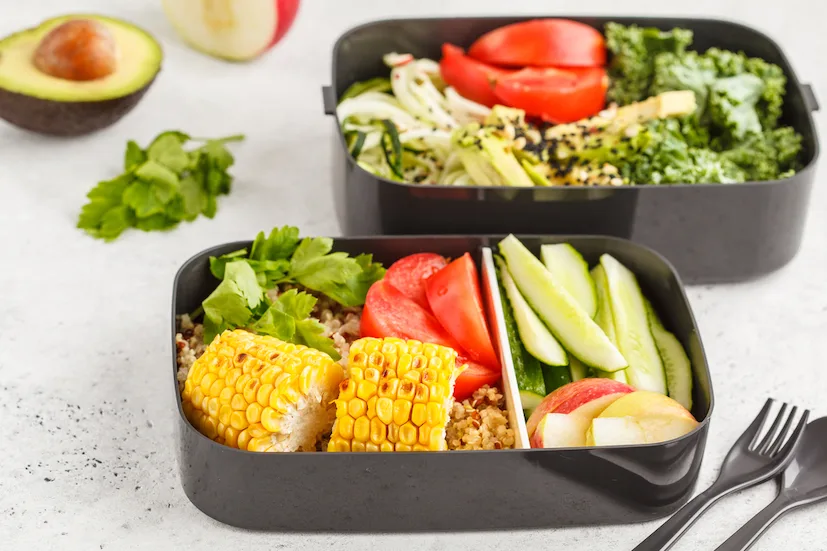In today’s fast-paced world, finding ways to save money has never been more important. From everyday expenses to long-term financial goals, making savvy decisions with your finances can have a significant impact on your overall well-being.
Whether you’re a seasoned saver or just starting your journey toward financial freedom, these 15 tips are sure to help you stretch your dollars further and achieve your money-saving goals.
Stop Buying Stuff You Don’t Need

Image Credits: TORWAISTUDIO, Shutterstock
Putting an end to purchasing items you don’t truly need can significantly bolster your savings. Studies reveal that the average American spends over $1,000 annually on impulsive purchases.
By curbing this habit, you can redirect those funds towards more meaningful investments or savings goals. For instance, resisting the urge to buy that designer handbag or the latest gadget can translate to substantial savings over time, enabling you to build an emergency fund or invest in your future
Buy In Bulk If It’s Often Needed

Image Credits: Deposit Photos.
Buying items in bulk you regularly use can lead to significant savings over time. A few studies indicate that purchasing goods in bulk can result in savings of up to 25-30% compared to buying individual items.
For instance, buying non-perishable goods like toilet paper, laundry detergent, or canned goods in bulk can lower the cost per unit. By stocking up on essentials in larger quantities, you not only save money in the long run but also minimize the frequency of trips to the store, saving time, reducing transportation costs and impulse purchases.
Pay Yourself First

Image Credits: Deposit Photos
Systematically allocating a portion of your income into savings can help you save money. Deciding on a set percentage beforehand, such as 10%, and consistently doing that can create a disciplined approach to building your financial reserves. For example, if you earn $3,000 monthly and commit to saving 10%, you would set aside $300 each month. Over time, this disciplined saving habit can accumulate significantly, providing a financial safety net for emergencies or future goals.
Besides that, if you invest your monthly savings into a high-yield savings account or investment vehicle earning compound interest, your money will generate returns on top of your initial contributions.
Start Budgeting

Image Credits: Deposit Photos.
By tracking income and expenses, budgeting helps identify spending patterns, prioritize essential expenses, and allocate funds towards savings goals. An uncommon yet effective budgeting strategy is reverse budgeting, where savings are prioritized by setting aside a portion of income before allocating funds toward expenses.
Additionally, zero-based budgeting ensures that every dollar of income is assigned a specific purpose, leaving no money unaccounted for and empowering individuals to take full control of their finances.
Don’t Get In Credit Card Debt

Image Credits: Deposit Photos.
Credit card debt often comes with high interest rates, which can quickly snowball into a significant financial burden if left unchecked. The average interest rate on credit cards is around 16%, significantly higher than other forms of debt. Moreover, carrying a balance on your credit cards can damage your credit score, making it harder to qualify for loans or obtain favorable interest rates.
With credit card debt reaching over $1 trillion in the United States alone, it’s crucial to exercise caution and responsible spending habits to avoid falling into the trap of high-interest debt.
Don’t Go Grocery Shopping On An Empty Stomach

Image Credits: Deposit Photos.
Shopping for groceries on an empty stomach can actually work against you, leading to increased impulse buys and a higher likelihood of purchasing unhealthy junk food. When hungry, you’re more susceptible to cravings and tempted by appealing displays or promotional offers, making it harder to stick to your shopping list and resist impulse purchases.
Don’t Buy New All The Time

Image Credits: Deposit Photos
You don’t always need to buy new items; second-hand purchases from thrift stores can be just as good and cost-effective. For example, buying gently used clothing, furniture, or electronics can save you a significant amount of money while still providing quality items.
According to recent data, the resale market is booming, with the global second-hand market projected to reach $64 billion by 2024.
Pack Your Lunch

Image Credits: Deposit Photos.
By preparing your meals at home and bringing them to work or school, you can control portion sizes, ingredients, and costs. For example, the average cost of a homemade lunch is estimated to be around $5-$7 per meal, compared to $10-$15 for a typical restaurant or takeout lunch.
Over the course of a month or year, these savings can accumulate to a substantial amount. Additionally, packing your lunch allows you to make healthier choices and reduces the temptation to indulge in expensive and often less nutritious fast food options
Buy Cars In Cash And Live In Smaller Houses

Image Credits: Deposit Photos
If possible, purchasing a car outright with cash can offer numerous financial benefits. By avoiding monthly loan payments and interest charges, you save money in the long term and gain full vehicle ownership immediately. Additionally, buying a car with cash eliminates the risk of depreciation, as you won’t owe more than the car’s value.
Similarly, a smaller home can yield substantial savings on mortgage or rent payments, utility bills, and maintenance costs. Smaller homes often have lower property taxes and insurance premiums, providing further financial relief.
Use Cashback Apps

Image Credits: Deposit Photos.
Cashback apps and websites allow consumers to earn money back on their purchases, effectively reducing the overall cost of shopping.
These platforms partner with retailers to offer customers a percentage of their purchase amount as a cash rebate. For example, if you make a $100 purchase through a cashback app that offers 5% cashback, you will receive $5 back.
Comparison Shop

Image Credits: Deposit Photos
Before making a purchase, it’s wise to compare prices from various retailers to ensure you’re getting the best deal possible. Price comparison websites and browser extensions are valuable tools for this task, as they allow you to easily compare prices across different retailers without the hassle of visiting multiple websites individually.
Buy Generic Brands

Image Credits: Deposit Photos
Opt for generic or store brands instead of name brands to save money on groceries, household items, and medications. Generic products often offer similar quality but at a lower price.
Negotiate Bills

Image Credits: Deposit Photos
Negotiate with service providers such as cable companies, internet providers, or insurance companies to lower your monthly bills. Threatening to switch providers or asking for discounts can often result in savings.
